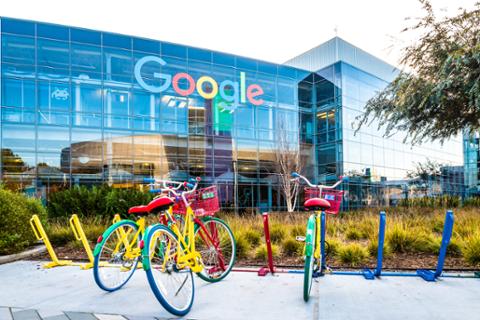It’s the weekend! Just in case you missed them (the week gets busy, after all), here were some of the week’s top tech stories, including all the new products rolled out at Google’s I/O conference, plus a firm date for the final demise of Internet Explorer, once the world’s most-used web browser. Let’s jump in!
Google I/O Leans into A.I.
At its big I/O conference, Google rolled out a variety of new products, many of which take advantage of the search-engine giant’s A.I. work. Arguably the biggest of these announcements is Android 12, which embraces a new design scheme (Material You) as well as more robust privacy options.
But the other unveilings were also interesting; for example, Google is hard at work on a new tool that will use a smartphone camera to identify potential skin diseases. The pilot for the tool is scheduled to roll out later in 2021. If it succeeds, there’s a good chance we could see more uses of computer vision to identify medical conditions.
Google Maps is undergoing an upgrade, including augmented reality options:
We’re making it easier to explore with Live View.
— Google Maps (@googlemaps) May 18, 2021
Soon you’ll be able to access it right from the map to see helpful details about places nearby — like their busyness, reviews, photos, and more. #GoogleIO pic.twitter.com/V2g5Q8s7rR
Google has leveraged its A.I. capabilities to improve Google Maps’ directions, using data from cars and phones running the Maps app as input. “Understanding spots along a route that are likely to cause hard-braking is just one part of the equation,” read the company’s official blog posting on its work. “We’re also working to identify other contextual factors that lead to hard-braking events, like construction or visibility conditions. For example, if there’s a sudden increase in hard-braking events along a route during a certain time of day when people are likely to be driving toward the glare of the sun, our system could detect those events and offer alternate routes.”
This year’s I/O was yet another example of how Google is depending on A.I. for a marketplace advantage, particularly in the unending battle between Android and iOS for mobile-device supremacy.
R.I.P. Internet Explorer?
It’s finally the end of the road for Internet Explorer (IE), the widely used (and widely maligned, in some quarters) web browser that Microsoft launched back in ye olden days of 1995. If you’ve followed the twists and turns of the technology industry since Bill Clinton was President, you’ll doubtlessly remember the controversy over Microsoft bundling IE with Windows, which helped squish Netscape, once the world’s dominant browser.
Internet Explorer had its time in the sun, only to find its market-share eaten away by newer browsers such as Google Chrome and Firefox. Microsoft stopped developing new features for IE in 2016 (aside from security updates); and now, according to a posting on the official Windows Blog, the IE desktop application is scheduled for final retirement (i.e., no support) in June 2022.
But wait! As with everything Microsoft and its sprawling ecosystem of products, Internet Explorer isn’t entirely dead, just… zombie-like. “This retirement does not affect in-market Windows 10 LTSC or Server Internet Explorer 11 desktop applications,” the blog added. “It also does not affect the MSHTML (Trident) engine. For a full list of what is in scope for this announcement, and for other technical questions, please see our FAQ.”
That’s the thing about Microsoft: even when a product is supposedly buried, there’s still someone out there using a variation of it, often a government agency or major institution that only refreshes its tech stack once every fifteen years or so. For those entities, specialists and contractors will no doubt do their best to keep IE going until that inevitable upgrade. For everyone else who still insists on using IE, though, you have until next year to find a new browser—Microsoft would like you to use Edge, but there are lots of options out there.
The Price of Space
How much would you pay to end up in orbit?
Blue Origin, the spaceflight company founded by Amazon founder Jeff Bezos, is currently taking bids for a seat aboard its New Shepard rocket. The current top bid is $2.8 million for a flight scheduled to lift off on July 20. If you have that kind of cash lying around, you can head over to Blue Origin’s site and place your bid.
That’s it, everyone! Have a great weekend!



